|
This is part of a series where I write about my stay in Rwanda and Uganda and what I learned that might be helpful from an EA perspective.
You can see the full list of articles here, which I will add to as they come out. So far I have only spoken to two women in Rwanda who have lost children and the results were very surprising. One had lost one baby, the other had lost three babies and one child of eighteen years old. When I asked the first how long she felt sad after her child passed, she said one day. Shocked, I asked her how her husband had felt. One day too. She told me she had many children and you have to move on. The other seemed similarly unphased by losing the three babies. She didn’t give me a number of days, but she said she didn’t feel sad for very long. However, when she lost her 18 year old son, she said she fell into a depression that lasted a year and clearly talking about it in the present still made her feel quite upset. This line of inquiry is interesting if you have an Epicurean view of death, where death is only bad for the people who are still alive. For the person who passes away, they do not suffer for being dead as they do not exist. If you take this view, then preventing neonatal death might not hold as much weight as previously thought because losing a very young child has less effects on the family than losing an older one. Of course, this is a sample size of two, goes against strong priors, and could vary a lot region to region. It could also be that I am asking the wrong questions and others would give very different results. As such, I would only very minorly update based on this. If you liked this post you might also like:
0 Comments
This is part of a series where I write about my stay in Rwanda and Uganda and what I learned that might be helpful from an EA perspective.
You can see the full list of articles here, which I will add to as they come out. A pleasant discovery while I was in Rwanda was that people in my village basically ate no meat. Here are some samples of conversations I had: Me: How often do you eat meat in your household? Them: Two Me: Two times per week or per month? Them: Two times per year. --- Me: How often do you eat meat in your household? Them: Laughing and gesturing at my interpreter. My translator: They’re saying that you’re being ridiculous. Do you see how poor they are? How could they afford meat! The only people I met who ate dairy products regularly were people who had their own cow or the one family I met who was wealthy enough to have a television and a couch. The only people who ate eggs had a handful of their own chickens (you can read more about how they were treated here). When I was learning about their various holidays, they described something that I’d only seen in museums but is still running strong in Rwanda. In the past British people would participate in a joint savings group where everybody in the group would contribute a small amount each week to a collective pot so that they could afford a turkey on Christmas day. This is done the same way in Rwanda except that people start saving in January so that they can slaughter a cow for a feast on the New Year’s Eve of the following year. Overall, I updated substantially away from the concern about the poor meat-eater problem. If you liked this post you might also like: This is part of a series where I write about my stay in Rwanda and Uganda and what I learned that might be helpful from an EA perspective.
You can see the full list of articles here, which I will add to as they come out. What’s it like living in a benevolent semi-police state? Rwanda is an example of such a country, and given my experience there, I think it’s surprisingly good, but it definitely had some scary aspects. Let me explain my thought process. Kagame, the president, has “99% support” in the polls. I often laugh at “presidents” touting these numbers. Who do they think they’re fooling? No matter how good you are, you can never get that approval rating, so if it’s that high, you are definitely doing something decidedly undemocratic. In the case of Kagame, I actually genuinely think he’s done a lot of good and I suspect if he had a genuine election, he would still win. Just not at 99%. He is a strange character. He runs a tight ship with famously low corruption in a part of the world where corruption is the rule. He sets high expectations for government officials and holds them accountable to getting results. He fired a minister because the minister shoved a guard and nobody is above the law. Compare this to India where an absurd number of elected officials have ongoing court cases going on against them, including extremely serious things like rape and murder. Or neighboring Kenya, where virtually all politics is corrupt, or the Democratic Republic of the Congo, which is essentially chaos incarnate. His government is 50% women, and he is famous for being meritocratic. He is the darling of NGOs because his educated civil service is keen on technocracy and learning from global best practices. The justice system is decently functional and you can tell. People follow traffic rules, motorcyclists wear helmets and the taxi motorcycles all carry an extra helmet for passengers. The capital city is very clean. It’s cleaner than many American cities I’ve visited. There are no beggars or illegal shops on the side of the road. On the other hand, Rwanda is also a police state. The reason there are no beggars on the streets is because they are rounded up and put into camps. A sizable proportion is under some manner of employ with the government. This is for providing well-run government services, but it is also used to monitor the population. The press, of course, is not allowed to criticize the government. But it’s not only the press. That’s often rather standard in developing world contexts. No, the scary thing is that you aren’t really allowed, in an unofficial sense, to criticize the government privately. When I asked people about something to do with the government, people would immediately lower their voices, look around quickly to see if anybody could hear, and speak in low voices. If there was a door nearby they would close it. The interesting thing is that this would happen even if what they said next was positive. This was decidedly eerie. Nothing so eerie as the next event. I was on a Skype call with a German anthropologist who had spent several years in the region. She was young, smart, cheerful, and the sort of person who you’d have trouble disliking. I was trying to learn from her experiences, and suddenly she turned from bouncy to very serious. She said, “My friends have told me about what you’re doing and they asked me to talk to you. This is stuff you won’t read about or hear.” The drastic shift in tone put me on edge. It would be like if I had abruptly switched from telling people about my latest travelling misadventures to telling somebody that they had cancer and it was terminal. “What do you want to tell me?” “You have to be really careful what you ask in Rwanda. There are unspoken rules, and if you say the wrong thing, you can end up being disappeared.” I had heard of this, but I wasn’t too worried. Things like this can happen in India too, but if you’re an expat you simply get kicked out of the country. Countries don’t want to risk international incidents. “Oh yeah, I’ve read about that. But that doesn’t happen to expat NGO workers does it?” “It happened to me.” And then the connection cut out. The feeling I felt then was hard to describe. It was extreme anxiety, but combined with a sense of nausea and distrust. If it was a color, it would have been a rolling ball of black and grimey green rolling in my gut. It wasn’t a clear flash of fear like when you realize there’s a spider on you. It wasn’t the resigned feeling of distrust when a smiling car salesman comes your way. It wasn’t the nose wrinkling disgust when you catch a whiff of sewage. It was all of those things at once and a whole lot more distressing. It felt a bit like a horror movie. I hate horror movies. Thoughts rushed through my head. They would think I was doing official research without a visa. I was going to go to prison. Torture can happen in prisons here. My family wouldn’t know where I’d gone. I couldn’t call anybody or google anything because maybe they were monitoring the internet. I couldn’t get on a plane because they would be able to find me there. What had happened to my friend? Surely she was safe in Germany. What if I got out but I was traumatized for life? What if the guards of my building were coming for me right now? It turns out that her internet connection was just sketchy and she came back in a minute. However, that was perhaps the most scared I’ve ever been in my life, and that was just one minute of something that could have been Orwellian but wasn’t. I was a citizen of a wealthy country who I trust would help me if I was in trouble, daughter of a competent family who I think would move mountains to save me, and a person who believes people are good and trustworthy and has been rewarded her whole life for this belief. And still it only took me one minute in a police state to start not trusting anybody. I can only imagine the psychological effects of being in this environment your entire life. On the other hand, it is a predominantly benevolent police state, and it reminds me of a conversation I had with a jolly Bulgarian Uber driver in London. I was talking to him about the changes that had happened after Bulgaria switched from communism to democracy and capitalism. “It was a terrible change!” he said with passion. “Things were better under communism. Sure, you had to say exactly what the party said, but who cares? We had a guaranteed job, education, and things ran smoothly.” Perhaps this is the mentality of many Rwandans? After all, caring about politics is often only a luxury you can afford once you’ve gotten the basic necessities down. I think running the country with a tight fist has perhaps been responsible for its incredible turnaround from civil war-torn to the “Singapore of Africa”. Singapore might be an apt description too, given Singapore’s “president” has done amazing things for Singapore. In fact, both are listed on Wikipedia’s article on benevolent dictators. Perhaps Kagame was what Rwanda needed (and still needs?) after so much chaos and conflict, and once things are properly stable, they might switch to more free speech and genuine democracy. It’s hard to tell, but I’m certainly more open to the idea of choosing order and police state over chaos and democracy than I was before going there. If you liked this post you might also like:
This is part of a series where I write about my stay in Rwanda and Uganda and what I learned that might be helpful from an EA perspective.
You can see the full list of articles here, which I will add to as they come out. This is my favorite conversation I had while I was staying with a family in a Rwandan village. I was speaking to a group of eight or so people who were baffled at my interest in their pig and goats (I was also researching animal welfare in developing world contexts). After one such question, one of the men asked me something in return. “Does your family have goats?” I smiled a little. “No, we don’t have any goats.” “Pigs?” “No, no pigs either.” “You must at least have a few chickens!” “Not even chickens.” I could see his wheels turning. I’m rich. How could I not have livestock? “Does your family have any animals?” “Yep. We have a dog and a cat.” They all burst out laughing. This was the funniest thing they had heard me say. “A dog and a cat?” he asked after he’d caught his breath. “Why? Do you eat cats and dogs in Canada?” And thus began a long conversation about the concept of having pets and being friends with animals. I’m sure they left that conversation marveling at how crazy Westerners are, to have all that money and waste it on animals you can’t even eat or use for fertilizer. This is illustrative of how isolated the people in the village were, where they hadn’t heard of the concepts of dogs as pets before. I was used to India, where despite often being similarly poor, they still watched movies or had exposure to the wider world. In this village, even the relatively well-off university educated person might watch two Rwandan movies annually, let alone movies from other countries. Another question they asked was illustrative of this. Every culture has standard questions you ask when you’re first getting to know somebody. Where are you from? What do you do? In Rwanda, “where are you from?” was definitely the usual first question. The next question, though, was what crops my family grew. They were always floored when I told them we didn’t grow anything. “Where do you get your food?!” they’d ask, baffled. “The market.” Mind, most of them also bought food from the market, but the majority of their food they grew themselves. The fact that I bought all of my food from stores was strange to them. This wouldn’t be so surprising if it weren’t for the fact that most people living in Kigali, the capital city just a two hour bus ride away, also only buy their food from the market. The fact that most people in this village were unaware of such a lifestyle really highlights the limited knowledge they have of the rest of the world. This is not only because of a lack of education, but generally also from lack of radio and television. In India people also often had low literacy, but it was common to crowd around TVs owned by others in the community, which gave them some understanding of lives far away. Radio was also much more common in India. I rarely heard anybody playing radio in this village (in Kigali it was different) and if they were, it was just music. I think this is in part because many of the houses had little or no electricity. For TV, I only saw one where a crowd watched and that was in the neighboring small town and was at a place where you bet on sports and so only featured matches. The implications of this from a charity perspective are that you really want to be careful about making assumptions about “common knowledge”. You might already know that a lot of people in developing countries still believe that illness is caused by witchdoctors, but that can be just the tip of the iceberg. For any behavior change interventions, you should spend a lot of time talking to locals to learn what would resonate with them. If you liked this post you might also like: A thought experiment on what you would do if you never suffered again November 5th
I became Enlightened yesterday. After meditating for ten years, I finally did it! It feels amazing. This deep sense of abiding peace, with waves of satisfaction and intense levels of joy on demand. I don’t know for sure if it will last, so I am making this log to see what happens for future posterity and analysis. I’m going to go back to meditating in the cave. Looking forward to writing this journal. December 5th I have been sitting in complete bliss for the last month. No suffering at all during that time. Occasionally I feel hunger, physical pain, or a sense of sadness for the suffering in the world, but it does not cause suffering to me. I look at them and feel immense love for these sensations and thoughts. It is like crying at a sad movie. The emotions feel good and I do not wish to make them go away, for they, just like all of reality, are perfect just the way they are. January 1st I am leaving the cave. I realized that I wanted to share what I have learned with others. This is interesting. I thought Enlightenment would have abolished all desire. And it has. But it has not. How to describe it? I have a desire to help the suffering, but if I fail, I will not suffer. If I simply sit in the cave, I will continue to be blissful. I will feel completely satisfied. Complete. So why help? Why do anything other than stare at the wall? It is not because of some philosophical and rational reason to help. I simply want to. The desire arises, I see it, and seeing that I will be happy either way, I decide to attempt to satisfy it. January 2nd Do I desire beauty too? When I left the cave, I was blown away by the majesticness of the mountains. I was also overcome by these same emotions in the cave though. Everything is filled with a glowing light of beauty. So why would I want to see mountains? Do I? I shall have to experiment. January 3rd I desire truth! I realize this is the whole function of this log. But why? Why do I want anything? This is fascinating. I shall have to find others who have achieved Enlightenment and see what they have discovered. Am I what happens in general? Do others have different experiences? January 15th I spoke to another Enlightened One. He was sitting in a cave outside of a small Nepalese village. When I arrived he did not speak. He looked straight at me and did not respond. “Hello.” I said. “I heard you are Enlightened. I am as well and I wish to learn about your experience. When was the last time you suffered?” He smiled beatifically at me. After a long pause he said, “Not since my Enlightenment ten years ago.” “Wonderful! What have you done since then?” “Nothing. I sit here and experience deep bliss and peace. Why do anything else? I have abolished all desire.” “Then why are you speaking to me?” “Because I still wish to survive. This is my only remaining desire. To stay alive such that I may continue experiencing True Happiness. To stay alive, I must occasionally speak to visitors, such that I may receive alms. Of course, to die is also fine. I will not suffer when it happens. I put in the absolute minimum effort to stay alive because why do more?” “That is so interesting! I find that I still desire truth and beauty and to help suffering beings. You do not have these desires?” He laughs, a deep belly laugh of True Mirth. “Ah, I see. You finally prove my hypothesis.” “What’s that?” I ask, confused. “You see, I was a neuroscientist before I began my Quest for Enlightenment. I always debated with people that the only thing that mattered was happiness, so why not go straight to the source, achieve Enlightenment and be happy no matter what? “But people kept disagreeing with me. They said that they cared about more than happiness. I told them they were confused. They only cared about the truth because it made them happy. If they felt happy even if they believed incorrect things, they would not try to discover the truth of the matter. They only cared about others’ suffering because to see it made them feel sad. If they never felt sad about it, they would not care. Ultimately, it’s all about happiness. “At first I mostly spoke to the unsophisticated who had not thought of such matters much. I felt confident in my claims. But then as I continued my studies, I came across more and more people who were exceptionally intelligent and well versed in the topic. And they still disagreed with my obviously correct conclusion! “I became confused myself. They were not unaware of my arguments. They could easily follow my line of thought. And yet, they still disagreed. “Then it hit me. Perhaps I only cared about happiness, but others cared about other things as well? Perhaps the brain is structured such that its main form of motivation is to avoid suffering and pursue happiness, but that is only one of many mechanisms. Perhaps there’s variation between people about the strength of the various mechanisms, and some have only one: happiness. And perhaps those who have only one are like those who cannot visualize things in their inner eye who assume that when people say that they can, it is merely a figure of speech, as it is for them. They have typical mind fallacy and think that since they cannot visualize, others cannot either. “And here you are! We are proof of this! I ceased to suffer and since then I have pursued nothing. You, on the other hand, continue to have desires despite being in a constant state of bliss. How very lovely.” We spoke for a few more minutes, then I gave him some alms and departed. I had much to think about. I had much truth to discover, much beauty to apprehend, and many sentient beings to help. For despite having discovered Permanent and True Happiness, there were still things I wanted, and I would pursue them. Because life is not all about happiness to me.
This is part of a series where I write about my stay in Rwanda and Uganda and what I learned that might be helpful from an EA perspective.
You can see the full list of articles here, which I will add to as they come out. I think the biggest takeaway I had from my experience is that I am even more skeptical of survey methodologies than I was before, and I started off pretty intensely skeptical. The reasons for this is that I think that misunderstandings caused by translation, education levels, and just normal human-to-human communication errors are not only common, but the rule. I explain some things that I think might help mitigate these problems below. First I will list some examples that led to this conclusion. Not understanding hypotheticals. One of my main sets of questions was asking people which interventions they’d prefer. At first I started by asking people just what they’d like charities to do to help, but that was too broad. Around 90% of people could not think of anything. This makes sense if you think about it. Imagine somebody came up to you and asked you what charities could best do to help you. It’s not something that people have thought about much. After that I switched to asking people about paired options. At the end of this, once their minds were more primed to thinking about options, I’d ask the open ended question. The paired questions went along the lines of, “A charity could either pay for one person to go to university, or ten people to go to primary school. What do you want the charity to choose?”. Getting people to understand the question was very difficult, often requiring over three minutes to explain, and even then, it was unclear whether it had really been grasped. They would say things like, “They should do both” or “My children already went to primary school, so I’d ask for university.” Not understanding in general. People did not understand the question (yet answered what they thought it meant anyways) so frequently I had to create a shorthand marking for “didn’t understand”. I would guess that this happened in 20-80% of questions depending on the person. People giving inconsistent answers. An extremely common problem was that people would give inconsistent answers over the course of the conversation. I’d ask them about their job before this one and they would say that they had never had a job beforehand. Later they would refer to working at another farm or as a seamstress. Since I was there I was able to go back and ask them to clarify the previous statement. However, often even then it was unclear whether I’d gotten the correct answer the third time round. It is also my experience that standard surveying techniques do not give surveyors the leeway or incentives to correct inconsistencies or spend a lot of time explaining the question since that would lead to less standardization. I’m not sure the benefits of standardization outweigh the cons of not being able to correct for obvious errors. Refusing to rate happiness. I was asking a 75 year old, illiterate woman how happy she was. First off, she said she was very happy. I asked her to rate it on a Cantril ladder, which is what is commonly used (e.g. by the Gallup Poll) in low literacy settings. It shows a ladder from 1 to 10, with a number on each rung of the ladder, showing worst to best possible life. I also drew a smiley face at the top and a sad face at the bottom, which is also common in these settings. She did not understand the question at all and refused to answer.
Potential solutions
Of note, these issues are actually quite likely to be true in the developed world too, just (potentially) to a lesser degree. Additionally, this is less true for more objective metrics, like whether they have a dirt floor or how many cows they own. Lastly, surveys can be extremely flawed, but this is true for virtually every method available to us. The question isn't whether it's perfectly accurate, but whether it's better than our alternatives, and the case of surveys, so far it's the best we have. To modify Churchill's quote, science is the worst form of epistemology except for all those other forms that have been tried. If you don’t want to miss the next installments and want to stay up to date with my research in general, you can subscribe to my newsletter here, follow me on Twitter, Facebook, or my YouTube channel, where I summarize what I’m reading and convert quality written content into video and audio format. People both do not often interact with charities or do not realize that they are being helped by one. One of my questions while I was in Rwanda and Uganda was to ask people whether they’d ever been helped by a charity, and if so, ask them more about what they liked and didn’t like about the experience. However, probably only about 5% of people said they ever had. I even often made the question broader by asking whether they or anybody else they knew had interacted with a charity, still with the answer being no.
I think the reason for this is twofold:
This is part of a series where I write about my stay in Rwanda and Uganda and what I learned that might be helpful from an EA perspective. You can see the full list of articles here, which I will add to as they come out. If you don’t want to miss the next installments and want to stay up to date with my research in general, you can subscribe to my newsletter here, follow me on Twitter, Facebook, or my YouTube channel, where I summarize what I’m reading and convert quality written content into video and audio format. In which an EA goes to Africa, asks a ton of questions, then writes about it.
Here’s a series of posts summarizing what I learned and experienced:
Background I spent a week living with a family in a rural village in Rwanda, living in their hut, working on the farm, and asking them a million strange (EA) questions, like:
I also spent a month and a half in Rwanda and Uganda more generally, visited a fish farm, and sat and watched a lot of pigs and chickens, much to the villagers’ bemusement. I did this ground research to get a more qualitative sense of the problems and how best to help from an EA perspective. Epistemic disclaimer: everything about this is incredibly uncertain. This was just me spending a month and a half in a small part of Africa. My very first post is about how very limited all of this information is. Personally, this whole trip brought me twenty steps closer to complete epistemic nihilism, but for those of you who still have hope, here it is. I’ll tag all of the ones that refer to animal welfare so you can read or avoid those according to your preferences.
I often see people who say they want to write more often and the solutions they come up with are basically along the lines of “you have to work through your suffering.” This is actually the case for most creative works and the general principles apply to most of them, such as painting, poetry, music, design, etc. I take a different approach than this masochistic protestant work ethic. I use my SEEP system to make it so I write more frequently, and it’s a lot more painless and indeed, actually enjoyable (that being the second E in the SEEP system).
In summary, the approach is to: satisfice on polish, do it when you’re inspired, and make it short. A way to remember this is the acronym PISh. To get it to really stick in your head, remember an imaginary conversation with a person who says that writing is really hard and you reply, “Pish posh! Writing is delightful, dear boy!” (In this scenario you are an eccentric British writer sipping tea and talking to squirrels of course.) You could even add, “You simply have to let the habit SEEP into your life” and reuse the memorization tool I developed for the SEEP system. Without further ado, let’s jump into the explanation of the actual points.
So there you go: write short posts when you’re inspired with 80/20 grammar. The overall principles behind this being: make it short, do it when you’re excited to, and satisfice on polish. If you liked this post you might also like: Please vote on the research topics you think would help the EA community make the world a better place or suggest other ideas in the comments. Below are more details about the project. The poll is at the bottom of the post. I'm about to go to Rwanda and other African countries for an indefinite period of time (probably on the scale of a few months) and I'm going to be trying to get a better sense of on the ground, qualitative information. The science, quantitative, and big picture/low resolution stuff I can and will be getting on the internet via reading and Skyping with people, but I want to have a qualitative, higher resolution understanding from being on the ground. I think that this will help flesh out my understanding of the problems and might unearth things that would be hard to discover from afar. My strategy at the moment is to focus more on explore vs exploit and while some questions I have going in, I'm trying to keep it largely exploratory so that I can follow "leads" as they happen and jump on unexpected opportunities for learning. This means I'm trying to get as big a diversity of sources of information as possible outside of what I would usually learn from (e.g. EAs, academics, etc.). So please do recommend things (or books, etc.) that you think as a typical EA I might be missing. I basically have no money as this will be self-financed, so nothing that costs a lot. Unless you or anyone you know is keen on funding me of course! If I had more funds I'd be able to: hire local/professional translators to understand people better who I otherwise wouldn't be able to talk to; go to more remote areas that might have a completely different way of life and set of problems than those in more accessible ones; go to a wider range of countries; spend less time and cognitive energy arranging couch surfing or losing sleep in hostel dorms; and generally be able to jump on more opportunities as they come up. I think even just $2,000 US would make a huge difference to the endeavor. If you're keen, just reach out to me over PM or at katherinexsavoie@gmail.com I'll be writing up a lot but not all of the results of these questions on my blog and the EA Forum to share it with relevant parties. |
Popular postsThe Parable of the Boy Who Cried 5% Chance of Wolf
The most important lesson I learned after ten years in EA Why fun writing can save lives Full List Kat WoodsI'm an effective altruist who co-founded Nonlinear, Charity Entrepreneurship, and Charity Science Health Archives
April 2024
Categories |
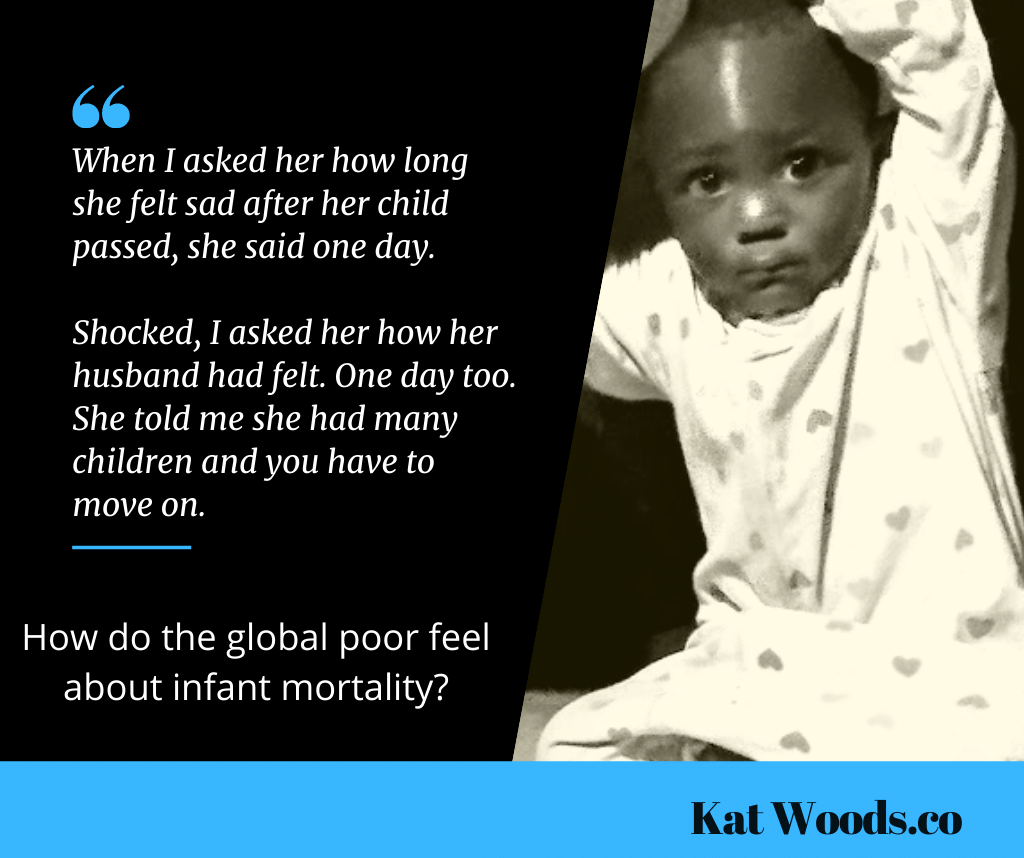

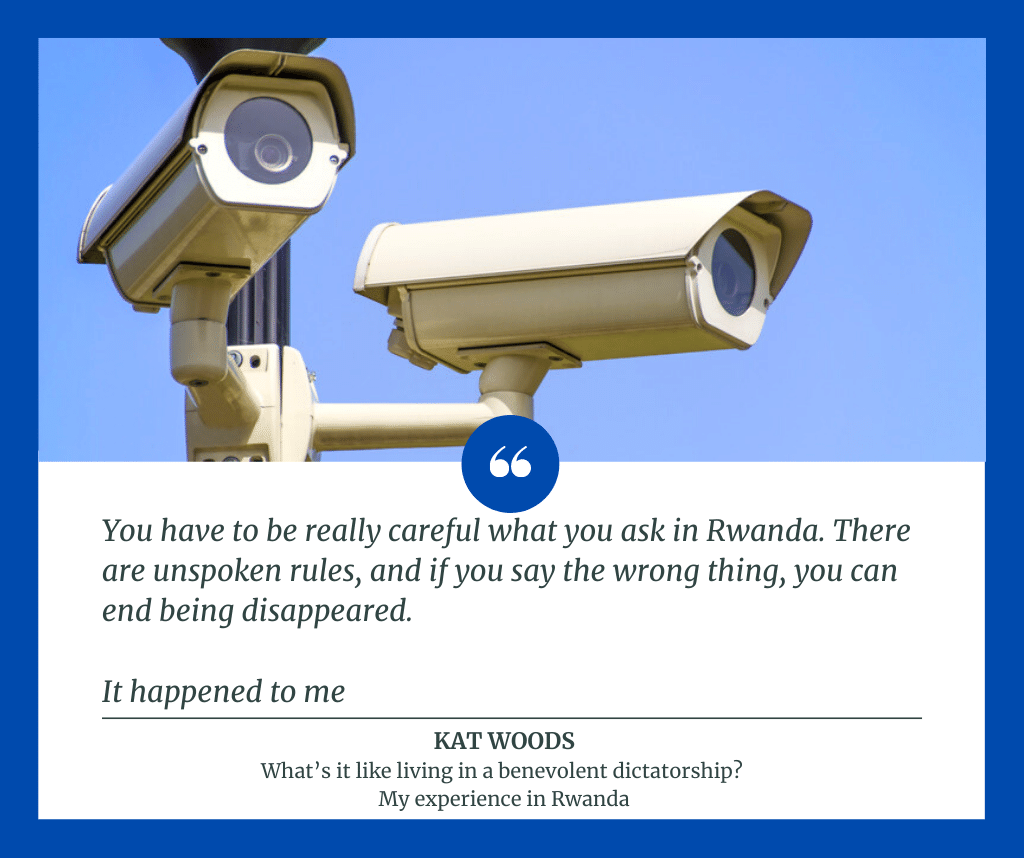
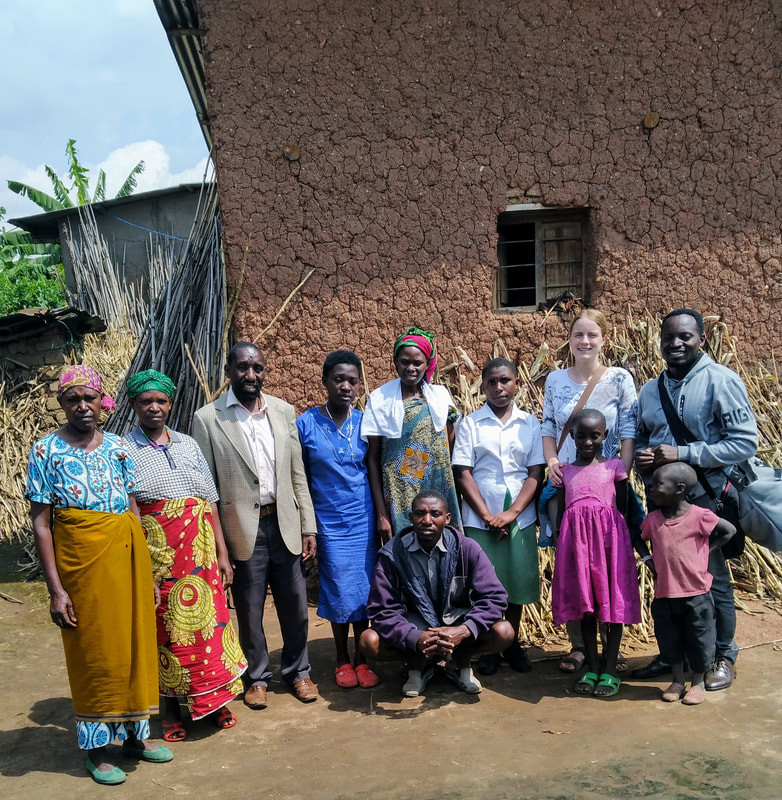

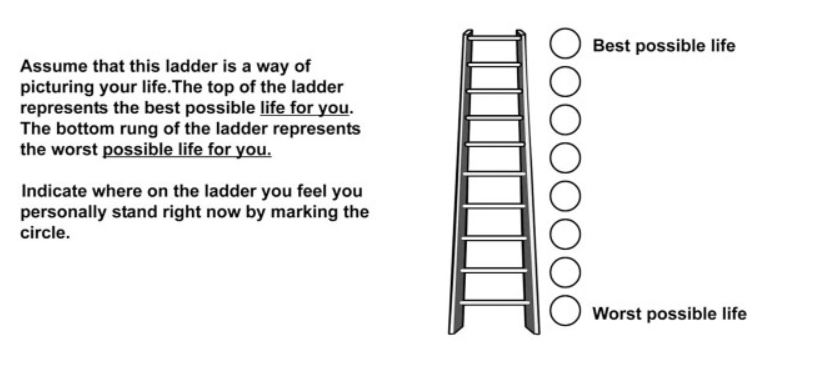
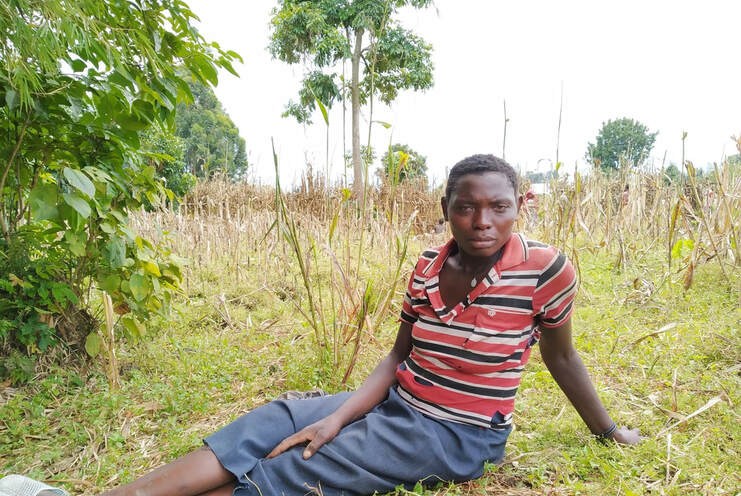

 RSS Feed
RSS Feed
